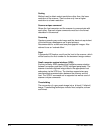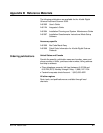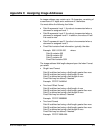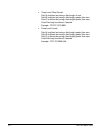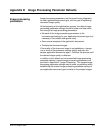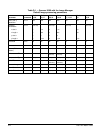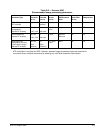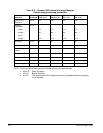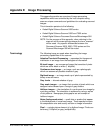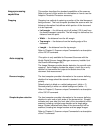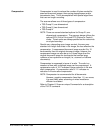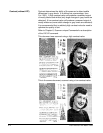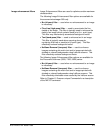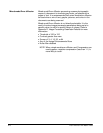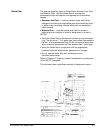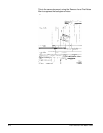
A-61122/A-61124 March 1999 E-1
Appendix E Image Processing
This appendix provides an overview of image processing
capabilities which are controlled by the host computer using
scanner-unique commands and guidelines for evaluating scanned
images.
This information pertains to the following:
•
Kodak Digital Science
Scanner 9500 series
•
Kodak Digital Science
Scanner 5500 and 7500 series
•
Kodak Digital Science
Document Scanner/Microimager 990
NOTE: For the purpose of this appendix, when referring to the
scanner and the scanner/microimager the term “
scanner
”
will be used. Any specific differences between the
Document Scanner 9500, 5500, 7500 series and the
Scanner/Microimager 990 will be noted.
Terminology
The following terms are used when describing the image
processing capabilities of the scanner.
Adaptive Threshold Processing — separates the foreground
information in an image from the background information.
Bi-tonal image — an unscreened image that consists of pixels
which are either black or white (1 bit/pixel).
Continuous tone image — an image, such as a photograph,
which can assume all possible shades of gray.
Digitized image — an image made up of pixels represented by
binary ones and zeros.
Gray levels — discrete shades of gray.
Gray scale images — an image that consists of pixels which are
assigned values based upon a range of gray shades.
Halftone images — the simulation of a continuous tone image by
a printing process. The simulation is achieved by using a series
of dot patterns. Newspaper photographs are an example of
halftone images.
Noise (background noise) — small dots or specks that appear
in the background of a scanned image. These specks increase
file compression size and usually contain no image information.
Pixel — a single picture element of a digitized image. Pixels can
be binary (1 bit/pixel) or gray (multiple bits).



